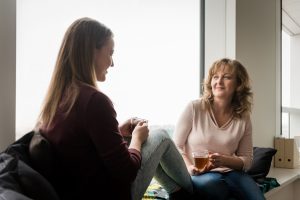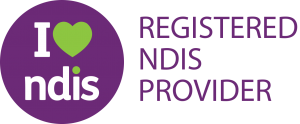TLC-WA provide an Autism Diagnostic Clinic in Joondalup. Working as part of a team with the referring paediatrician, our Speech Pathologist and Psychologist complete a comprehensive evaluation using recognised tools and assessments. Gathering information from the school or day care and interviewing the family (parents or caregivers), and analysing the assessment results, the clinicians develop an opinion in consultation with the paediatrician.

Autism Spectrum Disorder
Autism is a spectrum disorder which means that it is an umbrella term for a pattern of behaviours reflecting difficulties a child may have with social interactions, and rigid routines or fixations. It cannot be diagnosed via a blood test or genetic analysis.
Diagnosis requires that the child display certain behaviours across a number of criteria. In Australia, the National Guidelines reflect both the DSM 5 criteria and the International Classification of Functioning (ICF) standards for a diagnosis of Autism Spectrum Disorder.

Overview of the disorder
Autism Spectrum Disorder is not a single presentation, but a range of behaviours that result in difficulties socially and in being able to respond flexibly. This means that two children with the diagnosis can be quite different but still each meet the criteria.
Child A might not be talking at all, might be taking your hand to things they want, might be interested only in trains to play with, and their play might be only lining up the trains or sorting them into different groupings. They might become very upset if some one upsets their play or rearranges their toys. They might have a melt down if you take a different route to the shops.
Child B might also like lining up or sorting their toys, but they have an obsession with Paw Patrol figures. They might be talking like other kids their age, but just not quite ‘clicking’ and making friends, always seeming to be playing alongside rather than with the other kids.

Process
Here at TLC-WA we follow the gold standard procedure and the recently implemented National Guidelines for Autism Spectrum Disorder (ASD) Diagnosis.
Our experienced professionals take a child focused approach to ASD assessments. This comprehensive process includes direct assessment; observations; a detailed interview with the parents and/or caregivers; information gathering from all relevant professionals and others in the young person’s life, including teachers, paediatricians, occupational therapists, carers etc.
Clinics are currently held on a Friday morning and are attended by both the young person and their parents and/or caregiver.
The format for the morning varies depending on the family and child’s needs, however, it will always include a play based functional assessment and a comprehensive interview with the parents and/or caregiver.

Report
A comprehensive report including assessment findings and specific recommendations for support is given during a follow up feedback session (which is part of the diagnostic process and at no extra cost) with the parents/caregiver. If there is a diagnosis of ASD as a result of the assessment, TLC-WA will assist with recommendations to support funding applications through NDIA.

Funding
The NDIS does not fund assessments for Autism. You may be able to access some funding through private health insurance, or through Medicare for up to four allied health sessions to assist with assessment. This requires a referral from a paediatrician.
There are a variety of funding options following a diagnosis of ASD.
- There is the NDIS which may provide funding for reasonable and necessary support needed to achieve an ordinary life.
- The Education Department of WA can also use the diagnosis to access funding for support at school if this is necessary.
- There is also some limited funding available through Medicare to provide a partial rebate for up to twenty allied health sessions which your child may be eligible for.

Ongoing Support
TLC-WA can provide ongoing support for children diagnosed with ASD including speech therapy, psychology, occupational therapy and physiotherapy. We offer Secret Agent Society, an evidenced based program for developing social skills in children 8-12 years of age. We also have therapists who can provide the SOS mealtime program to help those children with food issues.
